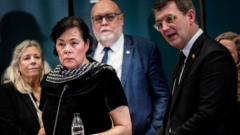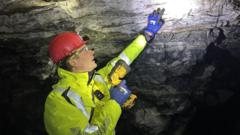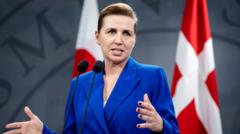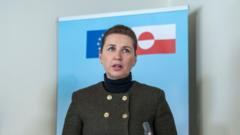Denmark has made history by setting up the world's first tax on agricultural emissions from livestock, implementing a series of measures to combat climate change and restore natural environments by 2030.
Denmark Pioneers World’s First Livestock Emissions Tax
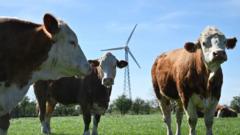
Denmark Pioneers World’s First Livestock Emissions Tax
A groundbreaking agreement will see Danish farmers taxed for livestock emissions starting in 2030, aimed at tackling climate change.
Denmark has reached a landmark decision to impose the world’s first tax on agricultural emissions, specifically targeting methane produced by livestock, effectively marking a pivotal moment in climate action. Following extensive negotiations involving the government, farmers, industry representatives, trade unions, and environmental groups, the Green Tripartite agreement was officially revealed in June.
Starting in 2030, farmers will face a levy of 300 kroner ($43; £34) per tonne of methane (measured as equivalent to carbon dioxide emissions) generated by livestock, such as cows and pigs. This amount is set to increase to 750 kroner by 2035. Jeppe Bruus, the Green Tripartite minister, emphasized the significant efforts required to achieve their climate goals, highlighting the parliamentary support they have gained.
In addition to addressing livestock emissions, the agreement also emphasizes reducing nitrogen pollution to help rejuvenate coastal and fjord ecosystems. Reports indicate that nitrogen emissions may decline by up to 13,780 tonnes annually starting in 2027. A holistic approach to improving biodiversity in Denmark will be prioritized, with pledges made to plant 250,000 hectares of new forests and restore 140,000 hectares of peatlands back to their natural state.
Peatlands, known for their ability to store carbon, will play a critical role in Denmark’s environmental strategy. Presently, 60% of Denmark's landscape is cultivated, ranking it alongside Bangladesh for the highest levels of agricultural land. Bruus remarked, “Danish nature will change in a way we have not seen since the wetlands were drained in 1864,” signifying a significant transformation on the horizon.
Lars Aagaard, the Danish minister for climate, energy, and utilities, praised the agreement as a demonstration of the nation's commitment to climate action. Aagaard also noted the importance of the collaborative approach with broad political backing and stakeholder involvement, suggesting that such cooperation could greatly benefit global climate initiatives.



